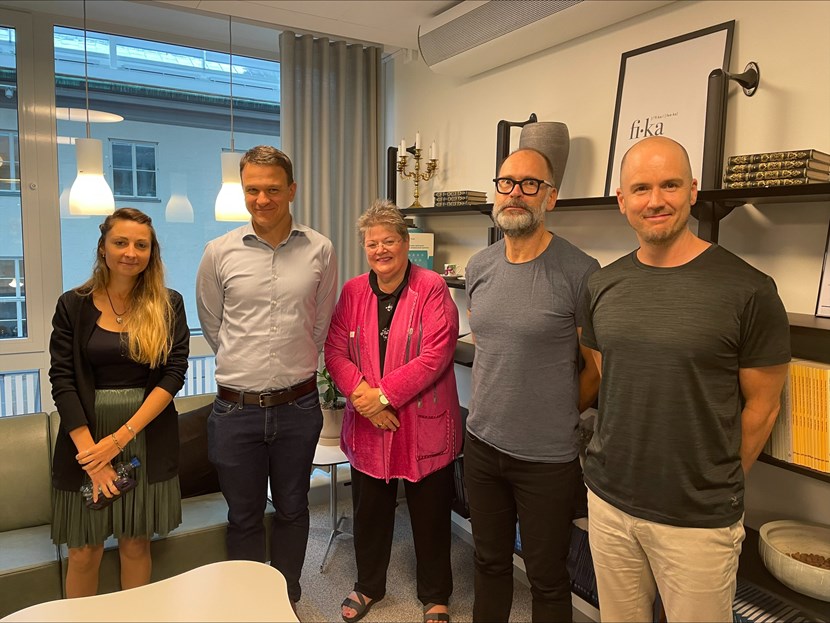World Bank Visits Swedish House of Finance to Discuss Carbon Pricing and Emissions Research
sep. 13, 2024
World Bank officials Alexandra Campmas and Susanne Åkerfeldt recently visited the Swedish House of Finance to explore the impact of Sweden’s carbon pricing policies and their broader implications. The discussion centered on a study by Swedish House of Finance researchers that showed how carbon pricing, along other policies, can achieve emissions reductions.

The study published in the Review of Financial Studies, led by Gustav Martinsson, László Sajtos, Per Strömberg, and Christian Thomann, analyzed Sweden’s carbon pricing from 1991 to 2015. It found that without these policies, Sweden’s emissions in 2015 would have been 30% higher. They also discussed how carbon pricing impact firms’ investment in R&D, improve energy efficiency, and adjust their product offerings to comply with environmental regulations.
“One of our objectives is to develop research at the frontier, and universities are the best places for this,” said Campmas, an economist at the World Bank, emphasizing the importance of collaboration between policymakers, academics, and international organizations. This knowledge exchange enables institutions like the World Bank to develop more informed and effective strategies.
Campmas and Åkerfeldt’s visit aimed to explore how Sweden’s carbon tax experience could be applied in developing countries, where the focus often begins with phasing out fossil fuel subsidies. “In developing countries,” Campmas explained, “we don’t immediately push for carbon taxes. Instead, we assess the existing policies, often starting by advising on removing fossil fuel subsidies and considering how to compensate households and other stakeholders affected by rising energy costs.”
A key takeaway from the visit, according to Campmas and Åkerfeldt, was the effect of climate policies on investment patterns. The research highlighted that while carbon pricing encourages companies to invest in sustainable practices, domestic resource mobilization and accessible finance is crucial to support these efforts. “Introducing a carbon tax is important, but it must be complemented by measures like raising capital to ensure a smooth transition,” Åkerfeldt, who is a World Bank senior adviser, noted.
Åkerfeldt and Campmas also highlighted their ongoing collaborations with academic partners, in the UK, to model scenarios and understand how carbon pricing influences investment decisions.
The visit underscored the critical need for governments, researchers, and international organizations to work together to address the inherent complexity of tax rules.
“Learning firsthand about the needs of policy makers in governments or international organizations is essential for researchers working in this highly complex space,” said SHoF researcher and KTH Associate Professor of Corporate Finance Christian Thomann. “Being able to communicate research results face to face and being able to answer questions from officials helps to provide for answers that can directly help to shape policy.”
